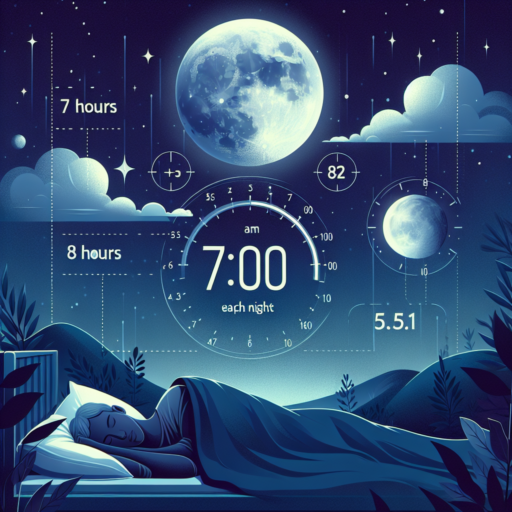Understanding Deep Sleep: What Is It?
Deep sleep, a pivotal phase in our sleep cycle, plays a significant role in our overall health and well-being. This stage of sleep, also known as slow-wave sleep, facilitates a range of vital physiological and cognitive processes. Its importance cannot be overstated, as it’s during this period that the body undertakes considerable recovery and restoration work. From muscle repair to the consolidation of memories, deep sleep is when our bodies and minds refresh and rejuvenate.
Deep Sleep and Physical Health: During deep sleep, the body enters a state of reduced physiological activity. Heart rates slow, breathing becomes deeper and more rhythmic, and muscles fully relax. This reduction in bodily functions enables essential repair processes. Growth hormone, pivotal for tissue growth and muscle repair, is predominantly released during this stage. Hence, missing out on deep sleep can impede physical recovery, impacting everything from athletic performance to general health maintenance.
The Role of Deep Sleep in Cognitive Functions: Equally critical is deep sleep’s impact on cognitive health and function. This stage of sleep is key for memory consolidation—the process by which short-term memories are transferred to long-term storage. Moreover, it aids in the clearing of brain toxins that accumulate during waking hours, a mechanism thought to be pivotal in preventing neurodegenerative diseases. Essentially, without sufficient deep sleep, our learning, memory, and overall cognitive resilience could be significantly compromised.
How Much Deep Sleep Do You Actually Need Each Night?
Understanding the quantity of deep sleep you require is crucial for optimizing your overall health and well-being. While individual needs may vary, it is widely recognized that adults should aim for approximately 1 to 2 hours of deep sleep per night, which constitutes about 20-25% of total sleep time. This phase of sleep is vital for physical recovery, memory consolidation, and ensuring that your body effectively recharges for the day ahead.
In assessing how much deep sleep you need, it’s essential to consider not just the quantity but the quality of sleep. Factors like prolonged stress, irregular sleeping patterns, and even the bedroom environment can significantly impair deep sleep cycles. Therefore, creating a conducive sleep environment and establishing a regular bedtime routine are key steps to enhancing the quality of deep sleep you achieve each night.
Technology also plays a pivotal role in quantifying and understanding sleep patterns. Modern sleep trackers and smartwatches provide insightful data on sleep stages, including the amount of time spent in deep sleep. Though these tools offer valuable information, they should complement rather than replace personal awareness and the advice of healthcare professionals regarding sleep health.
The Importance of Deep Sleep for Your Health
Deep sleep, often considered the most restorative sleep phase, plays a crucial role in enhancing our health and well-being. During this phase, our bodies undergo significant recovery processes. This includes everything from the repair of cells and tissues to the strengthening of the immune system, showcasing how vital deep sleep is for our physical health. Additionally, it aids in the rejuvenation of the mind, enhancing cognitive functions such as memory retention and problem-solving skills.
Moreover, deep sleep influences various hormonal balances within the body, which can directly impact our overall health. For example, it helps regulate the stress hormone cortisol, ensuring that our bodies can manage stress more effectively. Growth hormone, essential for growth and tissue repair, is also primarily released during this sleep stage. Consequently, deep sleep not only contributes to physical and mental health but plays a pivotal role in our body’s biochemistry.
Another aspect to consider is how deep sleep impacts emotional well-being. Research has shown that adequate deep sleep can improve mood, reduce the risk of developing mental health disorders, and enhance emotional stability. It’s during deep sleep that the brain processes emotions and experiences from the day, which is crucial for emotional resilience and psychological health. Thus, the importance of deep sleep extends beyond mere physical health, touching on the very essence of our emotional and psychological well-being.
Factors That Influence How Much Deep Sleep You Get
Getting enough deep sleep is crucial for your overall health and well-being. However, numerous factors can influence the amount of deep sleep you obtain each night. It’s essential to understand these dynamics to optimize your sleep quality and ensure your body gets the restorative rest it needs.
Diet and Nutrition
Your dietary habits play a significant role in your sleep quality. Consuming caffeine or sugary foods too close to bedtime can drastically reduce your ability to fall into deep sleep. On the other hand, balanced meals that include sleep-promoting nutrients such as magnesium and melatonin can enhance the quality of your deep sleep.
Stress and Anxiety
High levels of stress and anxiety are notorious for disrupting sleep patterns, making it challenging to achieve deep sleep. The mind’s inability to settle down prevents the body from reaching the relaxation needed for deep sleep stages, highlighting the necessity of stress-reducing practices before bedtime.
Physical Activity
Regular physical activity is beneficial for sleep; however, the timing of exercise can significantly impact its effects on deep sleep. Engaging in high-intensity activities close to bedtime may keep your body in an alert state, delaying the transition into deep sleep. Therefore, timing your workouts to earlier in the day can promote better deep sleep outcomes.
Ways to Measure Your Deep Sleep
When we discuss deep sleep or restorative sleep, being able to measure it accurately becomes crucial for understanding our sleep health. Effective measurement not only helps in gauging the quality of sleep but also in making necessary adjustments to improve it. In this light, there are several approaches one can take to ensure they are getting adequate deep sleep.
Using Wearable Sleep Trackers
One of the most popular methods to measure deep sleep today is through the use of wearable sleep trackers. Brands like Fitbit, Garmin, and Apple offer devices that track your sleep stages including light, REM, and deep sleep. They work by monitoring your heart rate, movement, and sometimes even your blood oxygen levels while you sleep. While they are convenient, it’s important to note that these devices estimate sleep stages based on physical indicators, and may not always be as accurate as clinical sleep studies.
Undergoing a Polysomnography Test
Polysomnography, or a sleep study, is a comprehensive method used by professionals to evaluate your sleep. Conducted in a sleep lab, this test monitors brain waves, oxygen levels in the blood, heart rate, breathing, as well as eye and leg movements throughout the night. This method is considered the gold standard for measuring all aspects of sleep, including deep sleep. Though highly accurate, polysomnography requires spending the night in a lab, which may not be convenient for everyone.
In conclusion, understanding and measuring deep sleep is vital for maintaining optimal health and well-being. Whether you opt for the convenience of a wearable tracker or the precision of a professional sleep study, getting insight into your sleep patterns is a step forward towards better sleep hygiene.
How to Improve Your Deep Sleep Quality
Improving your deep sleep quality is crucial for overall health and well-being. Deep sleep, or slow-wave sleep, is the time when your body repairs itself, consolidates memory, and releases growth hormones. Without adequate deep sleep, you might find yourself feeling tired, irritable, and unable to concentrate. Fortunately, there are several strategies you can implement to enhance your deep sleep quality.
Maintain a Consistent Sleep Schedule
One of the most effective ways to ensure better deep sleep is by maintaining a regular sleep schedule. Going to bed and waking up at the same time every day sets your body’s internal clock to expect sleep at a certain time, making it easier to fall asleep and enter deep sleep cycles. Avoid significant variations in your sleep schedule, even on weekends, to keep your sleep patterns consistent.
Create a Restful Sleeping Environment
Your sleeping environment plays a pivotal role in how well you sleep. To optimize your bedroom for better deep sleep, consider factors such as temperature, noise, and light. Keeping your bedroom cool, around 60-67 degrees Fahrenheit (15-19 degrees Celsius), can help your body maintain a comfortable sleep temperature. Reducing noise with sound machines or earplugs and minimizing light exposure with blackout curtains or eye masks can also create a more conducive environment for deep sleep.
Additionally, incorporating relaxation techniques into your nighttime routine can further improve sleep quality. Practices such as reading, taking a warm bath, or meditating can help signal to your body that it’s time to wind down and prepare for sleep. By adopting these strategies, you can significantly enhance the quality of your deep sleep, leading to better health and improved daily functioning.
Common Myths About Deep Sleep Debunked
In the realm of sleep science, deep sleep is often shrouded in myths and misunderstandings. This crucial phase of our sleep cycle is frequently misunderstood, leading to a plethora of misconceptions about its nature and significance. In debunking these myths, it’s essential to rely on scientific evidence and experts’ insights. Below, we explore and clarify some of the most common myths surrounding deep sleep.
Myth 1: More Deep Sleep Equals Better Health
One prevalent myth is that the more deep sleep you get, the healthier you are. However, quality over quantity is what truly matters. While deep sleep is beneficial for physical recovery and memory consolidation, an excessive amount beyond the recommended stages can indicate underlying health problems. It’s crucial to aim for a balanced sleep cycle that includes all stages of sleep in appropriate proportions.
Myth 2: Elderly People Don’t Need Deep Sleep
Another common misconception is that elderly individuals require less deep sleep. In reality, while aging can affect sleep patterns, leading to less time in deep sleep, the need for this restorative sleep phase remains constant regardless of age. The challenge for older adults is achieving sufficient deep sleep, which is essential for cognitive function and physical health. Ignoring the importance of deep sleep in the elderly can have detrimental effects.
Myth 3: You Can Catch Up on Deep Sleep Anytime
Many believe that missed deep sleep can be easily compensated for by sleeping longer hours on subsequent nights. This notion, though appealing, oversimplifies the complexity of the human sleep cycle. Deep sleep occurs in cycles throughout the night, and its quality and quantity are influenced by several factors, including stress and lifestyle habits. Catching up on lost deep sleep is not as straightforward as it seems, underlining the importance of maintaining a consistent sleep schedule.
No se han encontrado productos.
The Impact of Lack of Deep Sleep on Your Well-being
Sure, I can create a content outline based on your instructions.
Sleep isn’t just a passive activity; it’s a vital part of our daily routine that affects our physical health, mental clarity, and emotional stability. Deep sleep, or slow-wave sleep, is particularly crucial because it’s during this phase that the body undergoes significant repair and regeneration processes. However, the impact of not getting enough deep sleep on an individual’s well-being can be profound and multifaceted.
Negative Effects on Physical Health
One of the most immediate and noticeable effects of sleep deprivation, especially a lack of deep sleep, is on physical health. Deep sleep plays a critical role in restoring the body, repairing tissues, bolstering the immune system, and balancing hormones. Without sufficient deep sleep, your body is less capable of performing these vital functions. This can lead to a weakened immune response, hormonal imbalances, increased risk of chronic illnesses such as heart disease and diabetes, and a general decline in physical well-being.
Impact on Mental Performance and Emotional Stability
Deep sleep is integral to cognitive processes and emotional regulation. It’s during this phase of sleep that the brain consolidates memories, processes information from the day, and clears out toxins. A lack of deep sleep can result in diminished attention span, impaired memory, reduced ability to think clearly or make decisions, and decreased problem-solving skills. Furthermore, it can also lead to emotional instability, increased stress, anxiety, and susceptibility to depression.
In sum, the absence of adequate deep sleep can have a cascade of effects on an individual’s overall well-being. Addressing and prioritizing deep sleep is essential for maintaining physical health, mental acuity, and emotional balance.
Deep Sleep vs. REM Sleep: What’s The Difference?
Understanding the difference between deep sleep and REM (Rapid Eye Movement) sleep is crucial for recognizing the architecture of sleep and its impact on our health. While both stages are essential for a restorative sleep experience, they serve unique purposes within the sleep cycle.
Characteristics of Deep Sleep
Deep sleep, also known as slow-wave sleep, represents the phase where the body recovers and regenerates. During this stage, heart rate and breathing slow down, and the brain waves become the slowest. It’s a period where the body focuses on healing, growth, and energy restoration. Deep sleep is critical for memory consolidation and immune system strengthening.
Characteristics of REM Sleep
On the other hand, REM sleep is the stage most associated with vivid dreams. It occurs in cycles every 90 to 120 minutes throughout the night. During REM sleep, the brain becomes more active, brain waves mimic being awake, and the eyes move rapidly in various directions—hence the name. This stage is essential for processing emotions, consolidating memories, and relieving stress.
FAQs: Answers to Your Common Questions About Deep Sleep
When it comes to enhancing our well-being, understanding the nuances of deep sleep is key. Deep sleep, or slow-wave sleep, plays a crucial role in our physical and mental health. Below, we answer some of the most common questions surrounding this vital rest phase to help you maximize its benefits.
What Is the Ideal Duration of Deep Sleep?
The ideal duration of deep sleep varies from person to person, but typically, adults should aim for 1 to 2 hours of deep sleep per night. This accounts for approximately 20-25% of total sleep. Achieving enough deep sleep helps with memory consolidation, physical recovery, and energy restoration, ensuring you’re well-rested and ready for the day ahead.
How Can I Increase My Deep Sleep?
Boosting your deep sleep can be approached through a combination of lifestyle changes and bedtime routines. Incorporating regular exercise, maintaining a consistent sleep schedule, and optimizing your sleeping environment for comfort and relaxation can significantly improve the quality of your deep sleep. Furthermore, minimizing exposure to screens and caffeine before bedtime can also aid in achieving deeper, more restorative sleep cycles.




